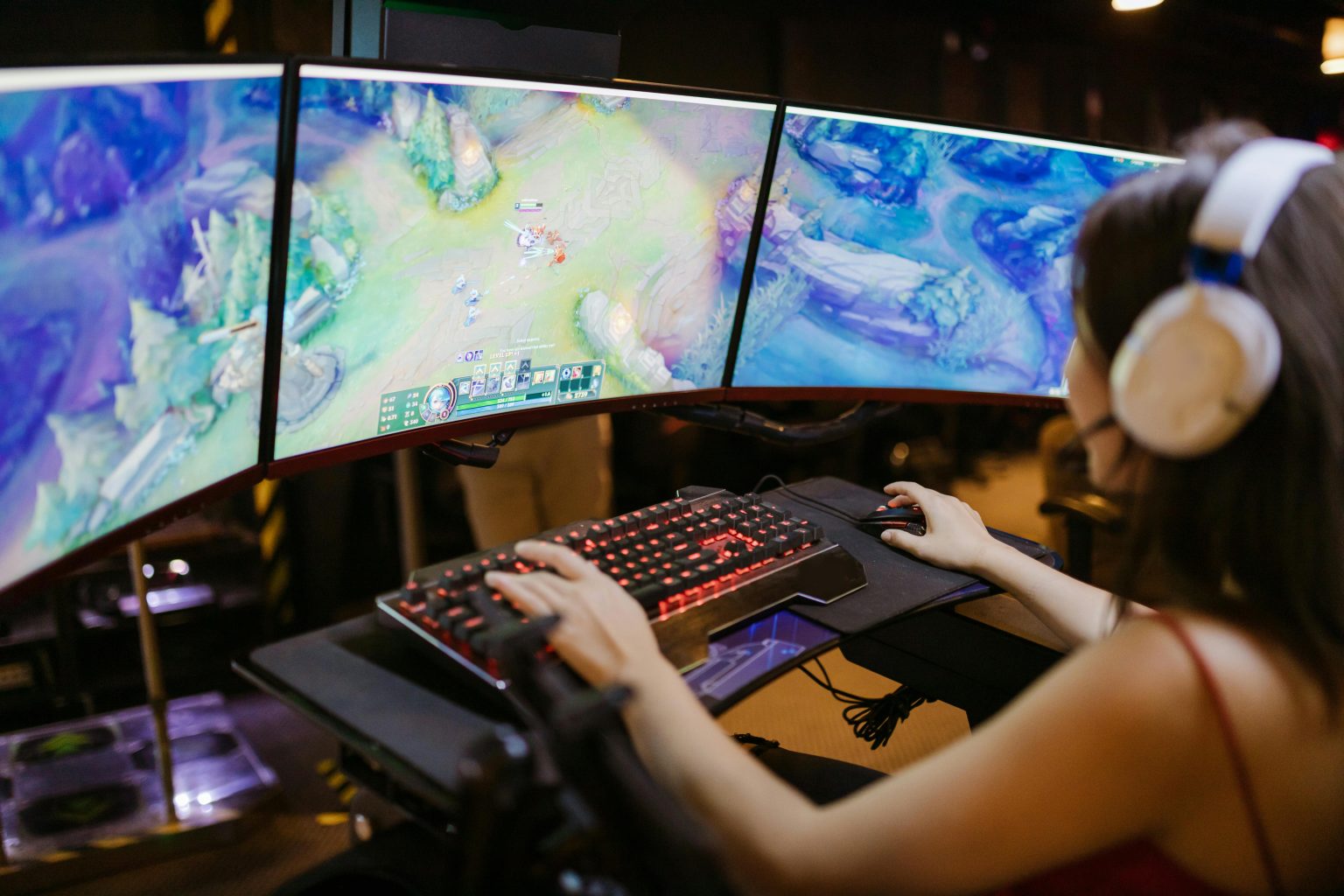It seems like the days of GamerGate restricting women’s gaming experiences are not only coming to an end but crashing hard, like Skyrim! As the organiser of the Guildford Games Festival Lauran Carter states, that the gender split has recently evolved from 90% male to an equal 50-50% ratio. We have to ask: What does a more female-centred gaming industry look like? Why don’t we log on and find out for ourselves?
In terms of e-sports, women are stepping up to the challenge to show that they aren’t about to ‘get rekt’ anytime soon just because ‘they’re girls’. With players such as Sasha “Scarlett” Hostyn, Eefje “Sjokz” Depoortere, Tricia “megumixbear” Sugita, Maria “Remilia” Creveling or Jorien “Sheever” van der Heijden playing high-skilled and competitive games such as League of Legends, StarCraft II or Dota 2, you can tell that the game isn’t playing them anymore, rather they’re playing the game. Earning as much as 31,000.52 to 472,111.32 $, that’s what I call a high score!
And that’s without considering the popular video-game streamers of 2024 with notable names like “Pokimane”, “Amouranth”, and “Valkyrae” dominating the scene. Streamers, such as Jay-Ann Lopez, founder of Black Girl Gamers, and Annabel Ashalley-Anthony, founder of Melanin Gamers, are also prominent voices advocating for diversity and inclusion in gaming. The future of female gaming may not be less diverse for a very long time.
What about notable video games created by women? We’ve got you covered – from popular entries like the Portal games that won Game of The Year in 2011 (made by Kim Swift who voiced Glados in the series) or the first Bioshock game (lead by Alyssa Finley) Animal Crossing New Leaf (made by Aya Kyogoku) to indie darlings such as Celeste (made by Maddy Thorson and Noel Berry) to Franbow (Natalia Figueroa and Isak Martinsson) gamers have a lot of options to choose from and the pile of games growing more and more as we consider games that are designed for female audiences such as Stardew Valley, Terraria, and The Sims to monumental mobile games such as Infinity Nikki and Love and Deepspace.
So what’s the conclusion? Women love games! We play them, we watch them, we even want to make them, right? Yes and no. We’re still seeing toxic and sexist communities for multiplayer games such as Valorant or Overwatch. We’ve yet to see female video game developers receive the same accolades as their male counterparts do in IGN’s Top 100 game creators and unfortunately, we still see multiple stories of sexism in gaming workplaces to this day.
If we truly want to see a world where sexism doesn’t plague the gaming industry and both genders can play as freely as we slay monsters or try on new outfit combos, we’re going to have to level up!
Edited by Anu Sanyaolu


